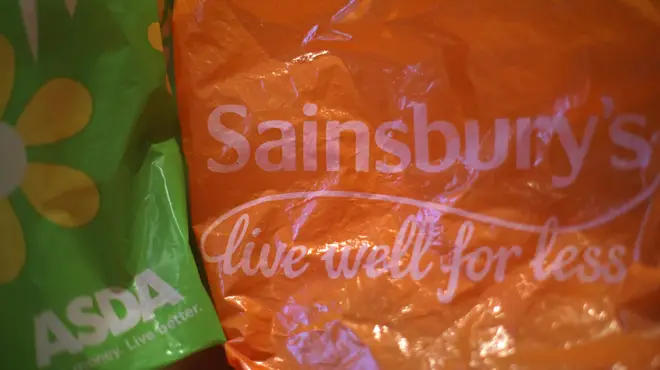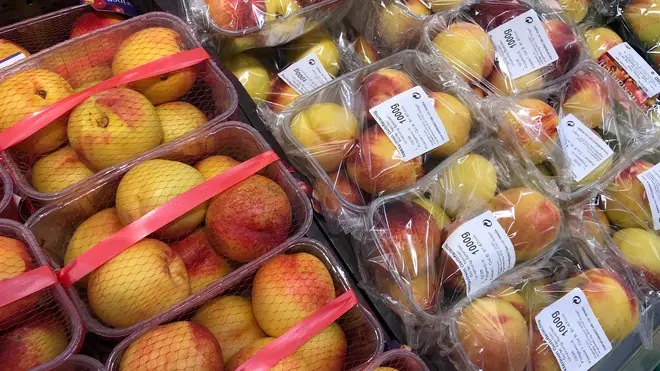
Clive Bull 1am - 4am
28 November 2019, 12:07

Greenpeace has called for the price of "bags for life" to be increased from 10p to 70p after sales rose 26% last year.
The environmental group also claims that a "bag for life" is really a "bag for a week" after it was revealed UK households buy on average 54 per year.
This is a "huge rise" on previous years, according to the group.
Researchers have said that the price of the bags should be increased to 70p, after the success of this in Ireland.
There was a 90% decrease in bag for life sales in the country, and researchers say they "ideally" want the same in the UK.
Concern has come after it was revealed the total amount of plastic packaging used by the UK's 10 biggest supermarkets increased from 886,000 tonnes in 2017 to 903,000 in 2018.
A report, from Greenpeace and the Environmental Investigation Agency, said this was mainly driven by increased sales of branded products, as opposed to supermarket own-brand products and an overall increase in product sales.
Of the biggest supermarkets in the UK, only Waitrose, Tesco and Sainsbury's recorded "marginal" reductions in plastic waste.
The other seven big supermarkets saw their plastic footprint increase.

The supermarkets were also ranked on their commitment to reducing single-use plastic and increase recyclable packaging.
Waitrose came out on top, followed by Morrisons and Sainsbury's.
Lidl, Asda and Aldi were the worst rated.
Greenpeace and the EIA are urging supermarkets to offer products without packaging, or switch to refillable or reusable alternatives.
The groups say that "false solutions", such as making plastic thinner or swapping plastic packaging for cardboard, are "unacceptable".
Fiona Nicholls, from Greenpeace UK, said: "We hear piecemeal supermarket announcements on plastic every other week, but in reality they are putting more plastic on the shelves than ever.
"Supermarkets need to buck up and think bigger. They must change their stores to offer loose food dispensers, reusable packaging, and move away from throwaway packaging altogether."